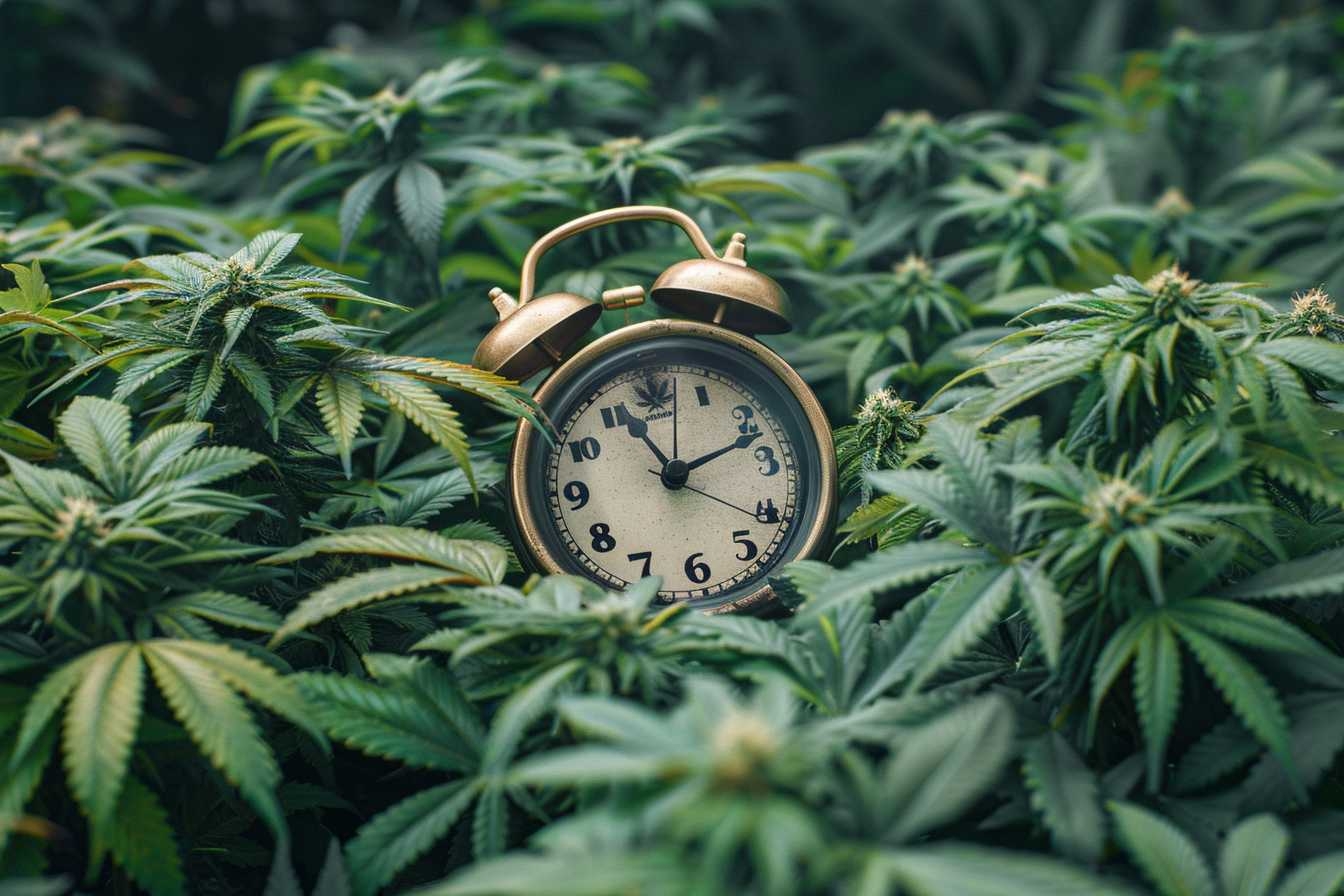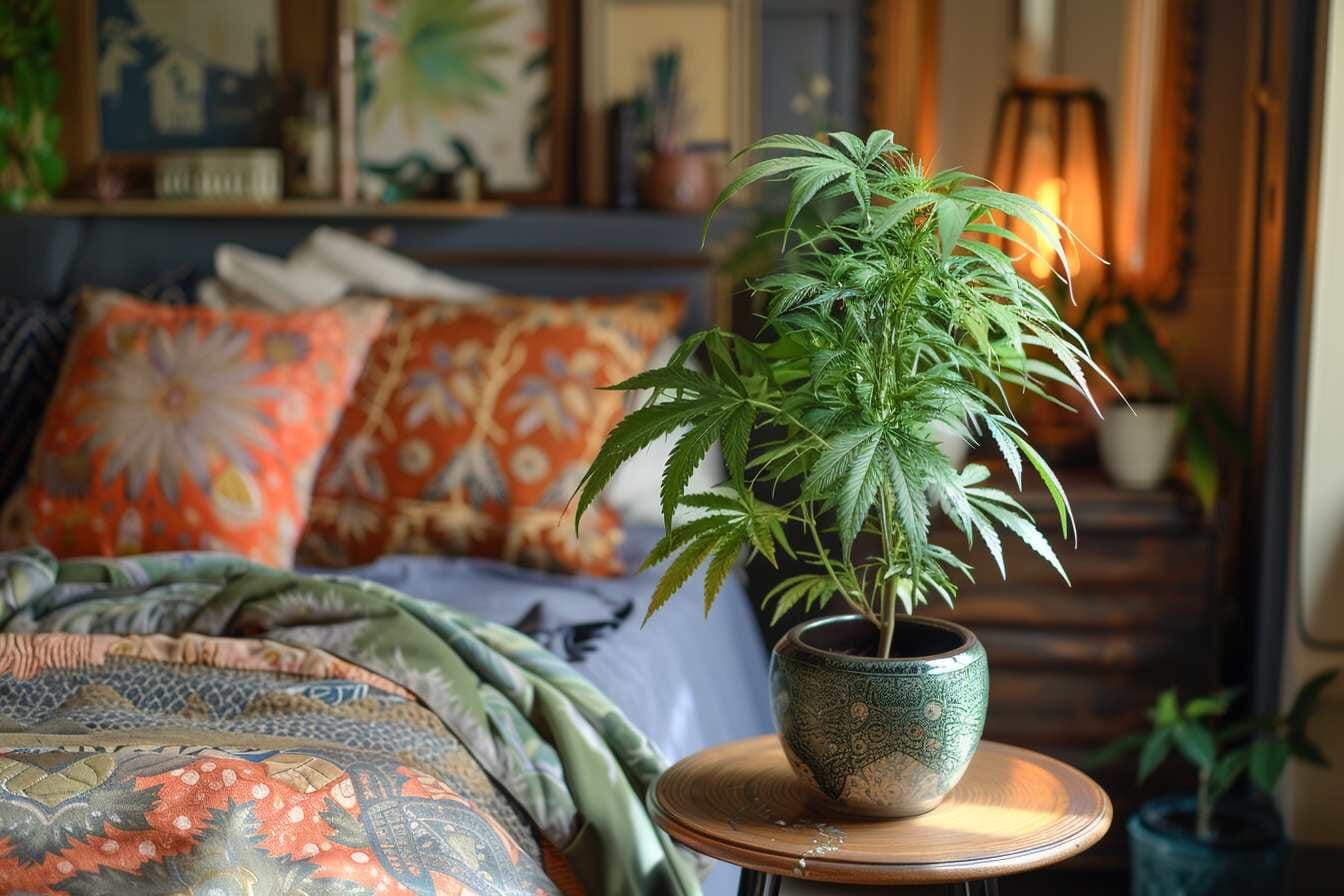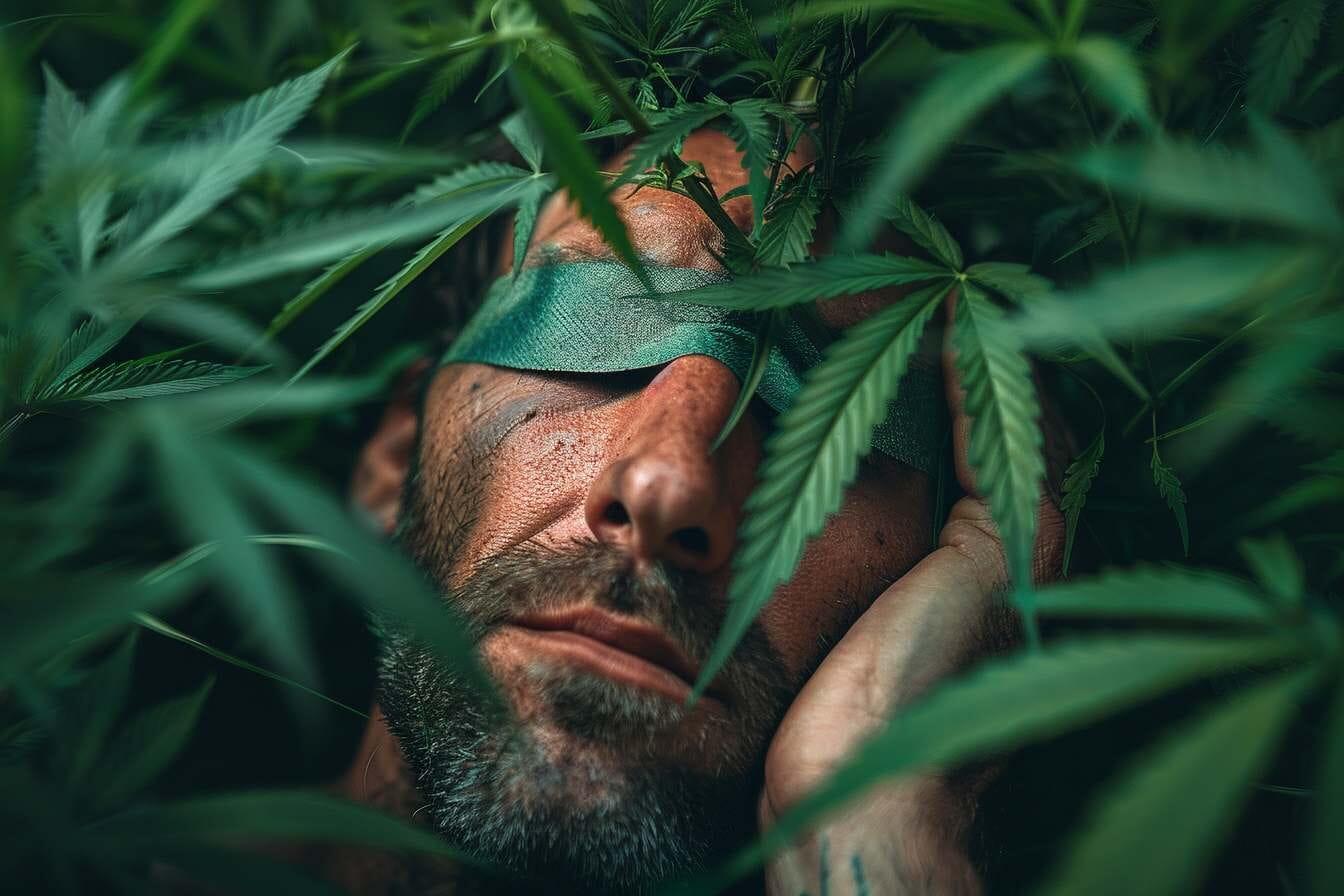Does CBD oil help you sleep better?

Sleep is essential for our health and well-being, helping to recover, regulate emotions, consolidate learning, and strengthen the immune system. However, many suffer from sleep disorders such as insomnia and nocturnal awakenings, negatively impacting their lives. To improve night rest, natural solutions are often explored. CBD oil, in particular, has proven effective in promoting sleep onset and improving sleep quality.
Reminder, what is CBD oil?
CBD, or cannabidiol, is a compound found in the hemp plant. Unlike THC, CBD has no psychoactive effects and does not cause a "high" sensation. CBD oil is obtained by extracting CBD from the hemp plant and mixing it with a carrier oil, such as coconut oil or hemp oil. The result is an oil rich in cannabidiol, which can be consumed sublingually or added to foods and beverages.

The effects of CBD on sleep
CBD sleep oil is a natural and promising solution for those looking to improve the quality of their night's sleep. Consumers seeking to fall asleep quickly may benefit from CBD's relaxing effect on the body, positively influencing the activity of the endocannabinoid system's receptors: a biological network essential for regulating critical functions such as pain, inflammation, mood, sleep, appetite, memory, and stress.
CBD indirectly interacts with the body's endocannabinoid receptors, such as CB1 and CB2. This interaction modifies their activity, giving CBD oil beneficial properties for those looking to improve sleep quality or combat insomnia symptoms.

Scientific studies and reviews on CBD and sleep
The relationship between CBD and sleep is the focus of numerous studies aiming to understand the benefits, underlying processes, and possible therapeutic applications of this substance. Although current research is limited and results vary from person to person, they indicate that CBD could offer significant benefits for improving sleep quality in various aspects.
A 2019 clinical study published in The Permanente Journal examined the effects of CBD on 72 adults affected by anxiety and/or sleep disorders. Each participant received a daily dose of 25 mg of CBD for a month.
The results were promising: 66.7% of participants reported improved sleep quality after taking CBD oil, and 79.2% noted a reduction in their anxiety levels.
Another study conducted in 2023 by the Sleep Foundation (an organization focused on improving sleep and well-being through research and expert-validated articles) aimed to determine if CBD could improve sleep quality and duration in people with or without sleep disorders. The results were conclusive: The results showed subjective improvement in some participants, although effects vary and more research is needed.
It is important to consult a doctor before using CBD products, especially if you are taking other medications, as CBD can interact with other drugs and cause unwanted side effects.
How to choose a good CBD oil for sleep
- Quality: Ensure that the CBD oil comes from hemp plants grown without the use of pesticides, herbicides, or GMOs. Also, check that the oil has been tested by independent laboratories to confirm its purity, safety, and compliance with current standards.
- Concentration: Choose a CBD oil with a concentration that meets your specific needs and your personal sensitivity to CBD. The concentration or CBD content is expressed as a percentage or in milligrams per milliliter. A higher concentration means more pronounced effects. It is recommended to start with a low dose and gradually adjust until the optimal dosage is reached.
- Extraction: Opt for cold-pressed CBD oil, a method that preserves the richness of the hemp's active compounds without chemical solvents. This technique, used by Marie Jeanne CBD®, ensures high-quality and pure oil.
- Composition: Select an oil that suits your goals and preferences. There are different types of CBD oils based on the spectrum of cannabinoids present. For example, full spectrum CBD oil contains all the cannabinoids, terpenes, and flavonoids of hemp, including a small amount of THC (<0.3%), enhancing the entourage effect and the overall effectiveness of CBD. Broad spectrum oil includes all components except THC, making it ideal for those who want to avoid it. CBD isolate oil is composed of pure CBD only.
- Origin: Favor CBD oil produced in Europe, where hemp cultivation is strictly regulated. Avoid products from regions with less clear or non-existent standards to reduce health or legal risks.
- Added ingredients: For enhanced effectiveness, choose an oil enriched with natural ingredients that promote sleep. For example, our specially developed sleep oil contains melatonin and essential oils of poppy and passionflower to enhance the entourage effect created by CBD.

FAQ: Using CBD for sleep
In this section, we will address frequently asked questions about using CBD to improve sleep. For any additional questions, it is advisable to consult a healthcare professional before starting CBD consumption.
When to take CBD for sleep?
The optimal time to consume CBD varies from person to person, influenced by factors such as dosage, form, and product quality. Some people find it easier to fall asleep after taking it, while others feel more awake. It is recommended to experiment with CBD consumption at different times to discover the most beneficial personal effect. Generally, taking CBD an hour before bedtime is suggested to allow it to act on the endocannabinoid system.
How to take CBD for sleep?
CBD can be consumed in various forms, including oil drops, capsules, or even gummies. The sublingual method (drops under the tongue) is often preferred for its rapid absorption and minimal loss due to digestion, for example.
Are there any dangers, contraindications, or side effects to using CBD oil for sleep?
CBD is generally considered safe and well-tolerated. However, it can cause mild side effects such as drowsiness, dry mouth, and dizziness. It is important to consult a doctor before taking CBD oil, especially if you are taking other medications or have underlying health conditions.
Is there a risk of dependence on CBD for sleep?
No, CBD does not present a risk of dependence. Being non-psychoactive, it does not create tolerance or withdrawal symptoms when stopping its consumption, affirming its nature as a safe and non-addictive product.

